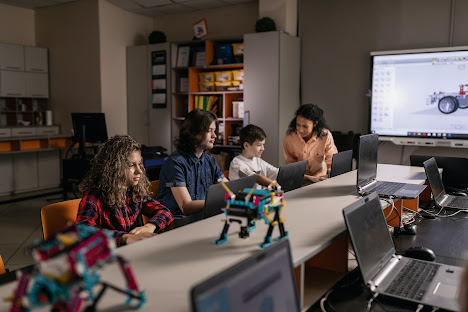Not all private kindergartens are equal. If you are considering a Montessori education for your child, look for these important traits that signify you are signing up for an authentic Montessori education.
Montessori Materials
Authentic Montessori kindergarten materials are typically made of wood or other durable materials and teach one or more important educational concepts. Montessori activities are self-correcting, meaning that the child can readily see whether the activity was completed correctly and make the necessary corrections without the intervention of a teacher or fellow student.Specially Trained Guides
Montessori teachers are usually referred to as guides because they play a different role in the classroom than you would expect of a public school teacher. Instead of lecturing the entire class on a given lesson, Montessori guides observe how children interact with different workstations, and then guide children in appropriate directions to help them achieve goals or overcome obstacles.Self-Directed Learning
Montessori children are free to move about the room, interacting with various activities, working alone, in pairs, or as part of a larger group. This is in sharp contrast to traditional schools where all children are working on the same lesson, which has been presented by the teacher and may not have any connection to the specific interests and strengths of the children.Multi-Age Grouping
Children in traditional school classrooms are almost all the same general age, separated by only a matter of months. In the Montessori classroom, children are grouped in 3-year age ranges. Instead of some children always being among the oldest and others among the youngest, Montessori kids all spend time as both the younger and older children in the room.Extended Work Periods
Another prominent difference between Montessori and the public school system is that Montessori children do not waste a portion of each day shuffling between classrooms and teachers. In Montessori, children remain with the same teacher all day-- and often for several years. This provides more time in the school day to apply to activities and gives children a better sense of consistency, factors that are beneficial to information retention, academic performance, and more.Always verify that the Montessori school you are considering is certified by a major Montessori institution. The word Montessori is not trademarked, and many schools claim to be Montessori but do not fully comply with the Montessori principles that are vital to developmental success. Before enrolling, ask the school administration to see the certifications of the school and its staff.





